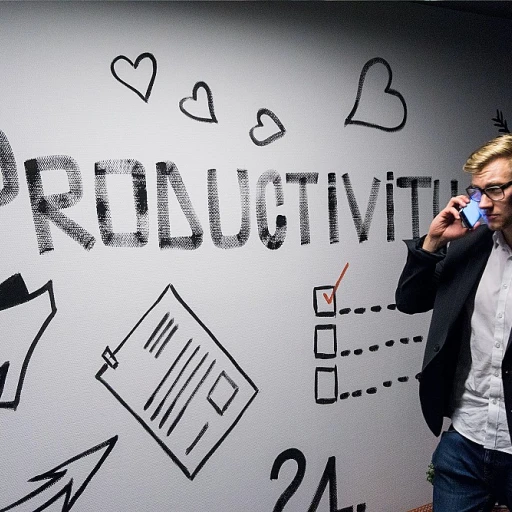
Understanding the Skills Gap
Understanding the Roots of the Skills Gap
The skills gap is an increasingly prominent concern for many hiring managers as they assess candidates. This divide highlights the difference between what companies need from their employees and the skills that potential candidates currently possess. It’s not just about having a good candidate for the job; it’s about ensuring they have the right skills for the role at your company.
Factors contributing to this gap include rapid technological advancements and the evolving nature of work, requiring new skill sets that weren't essential in previous years. Additionally, differences in educational priorities across institutions can result in graduates entering the workforce lacking essential skills.
To effectively bridge the skills gap, it's crucial for companies to recognize the specific skills required not only to fulfill a particular position but also to compliment the company's long term goals and culture. This doesn't just involve hard skills; there's also a significant emphasis on soft skills like communication, problem-solving, and adaptability.
Crafting the right interview questions and evaluating candidate responses is key to discerning if someone is the right fit. A well-structured interview question can reveal how a candidate's experience aligns with the company's needs. It’s important to discern not only whether a candidate can describe a time they demonstrated skills but also how they adapt and learn in real time.
Taking steps to understand and address the skills gap can lead to more informed hiring decisions and help your team remain competitive. For insights on nurturing your workforce to bridge the skills gap, consider exploring effective mentorship training strategies. By understanding and addressing the skills gap, you ensure a more capable, aligned workforce ready to tackle future challenges.
Identifying Key Skills for Your Industry
Spotting Crucial Skills for Industry Success
In the dynamic landscape of today's workforce, it's essential to pinpoint the skills crucial for a particular industry. This sets the foundation for effective interviews and ensures both the company and the candidates align well with the job requirements. Recognizing these key skills can notably impact the interview process, allowing hiring managers to craft relevant interview questions that gauge a candidate's potential for the role.- Understanding Industry Needs: Stay abreast of industry trends and advancements. For instance, emerging technologies often shift the skill set necessary in tech roles. A good understanding of what's shaping the industry will help identify these evolving skills.
- Consulting Team Members: Engaging with the team or department where the new role will function can provide insights on the skills needed at an operational level. Employees who work closely with the role in question can describe a time when a particular skill was pivotal in achieving a professional achievement.
- Defining Hard and Soft Skills: While technical expertise is critical, soft skills such as communication and adaptability are equally important. When formulating questions, consider both hard and soft skills to exploit the full potential of candidates.
- Reviewing Job Descriptions: A thorough analysis of the job description can underscore the skills and experience required for the position. Tailoring the job interview around these can elicit more specific and informative responses from candidates.
- Feedback from Past Interviews: Reflecting on the outcome of previous interview processes can help identify gaps. Were the right skills missing? Did candidates' answers lack certain expertise? Integrate these learnings to refine interview questions.
Formulating Targeted Interview Questions
Designing Questions to Assess Skills
Crafting effective interview questions is crucial in identifying the right candidates who possess the necessary skills for your company. A great way to start is by considering the skills crucial to the specific role in your industry. Asking questions that focus explicitly on these skills can reveal how well a candidate's experience and abilities align with the demands of the job.
Incorporate a mix of situational and behavioral interview questions. Situational interview questions help you understand how a candidate might react in hypothetical work scenarios, while behavioral questions can uncover past professional achievements and experiences. For instance, you could ask a candidate to "describe a time" when they had to use a particular skill to overcome a challenge.
Focus on questions that delve deeply into both hard and soft skills. This balance ensures you find candidates who not only meet the technical requirements but also fit well with your team and company culture. For example, soft skills such as teamwork and communication are just as important as technical abilities in many roles.
Good questions help you distinguish between a candidate's real skills and those they might have listed on their resume. Interview questions should be open-ended enough to allow candidates to describe their experience and skills in detail. This approach will help you evaluate not only what they can do but also how they’ve applied these skills in their career.
Remember, each question you ask should serve a clear purpose in the interview process, drawing out the specific skills needed for the long-term success of the company. Well-thought-out questions will help you identify candidates who are best suited for the position and contribute positively to your team.
Additionally, consider integrating a cognitive assessment to further assess potential hires. To understand its role better, you can explore this cognitive assessment tool which can offer deeper insights into candidates' abilities.
Evaluating Candidate Responses
Assessing Candidates' Responses for Insight
Understanding a candidate's ability to fill a role goes beyond just their resume—it requires scrutinizing how they respond during a job interview. Here are some key areas to focus on when evaluating candidate responses to ensure they align with your company's skills requirements and culture:- Relevance and Depth of Answers: Consider how effectively candidates answer interview questions related to the skills necessary for the position. High-quality responses should demonstrate practical knowledge and experience that align with your team's goals.
- Use of Real-World Examples: When candidates describe a time they've successfully handled situations similar to those they might encounter in the role, it reveals their problem-solving capabilities. This is crucial in both situational interviews and behavioral interviews, which shed light on their adaptability and soft skills.
- Alignment with Company Culture: Gauge how well candidates understand and embody your company culture through their responses. This will help determine if they will fit in well with the team and contribute to long-term career goals.
- Engagement Level and Enthusiasm: A candidate’s willingness to learn and desire to grow within the company are good indicators of their potential success. Responsive and engaged communication often translates to a motivated and dedicated team member.
- Professional Achievements: Look for candidates who highlight their professional achievements and how these have prepared them for the role. Assessing their answers about their greatest challenges and successes provides insight into their capability to succeed.
Incorporating Skills Assessments
Integrating Skills Assessments into the Interview Process
Incorporating skills assessments into your interview process can significantly enhance your ability to identify the right candidate for the job. These assessments provide a practical way to evaluate a candidate's capabilities beyond what they claim in their resume or during the interview. By focusing on both technical and soft skills, you can ensure that the individual is well-suited for the role and the company culture.
Here are some ways to effectively integrate skills assessments:
- Define the Skills Needed: Before you can assess candidates, it's crucial to identify the specific skills required for the position. This ties back to understanding the skills gap and identifying key skills for your industry. Knowing what you need will help you tailor your assessments accordingly.
- Use Real-World Scenarios: Situational interview questions and practical tasks can be used to simulate real work challenges. This approach helps in evaluating how candidates will perform in actual job scenarios, providing insights into their problem-solving abilities and work experience.
- Evaluate Soft Skills: While technical skills are essential, soft skills like communication, teamwork, and adaptability are equally important. Behavioral interview questions can help assess these attributes, ensuring the candidate fits well within the team and aligns with the company culture.
- Leverage Technology: Utilize online platforms and tools that offer a range of assessments tailored to different roles and industries. These tools can streamline the process, saving time for both the hiring manager and the candidates.
- Provide Feedback: Offering constructive feedback to candidates, whether they are successful or not, can enhance their career development. It also reflects positively on your company, showing that you value the time and effort candidates put into the interview process.
By incorporating these strategies, you can make more informed hiring decisions, ensuring that the candidates you choose are not only capable of performing the job but are also a good fit for your long-term goals. This approach will help bridge the skills gap effectively, leading to a more competent and cohesive team.













